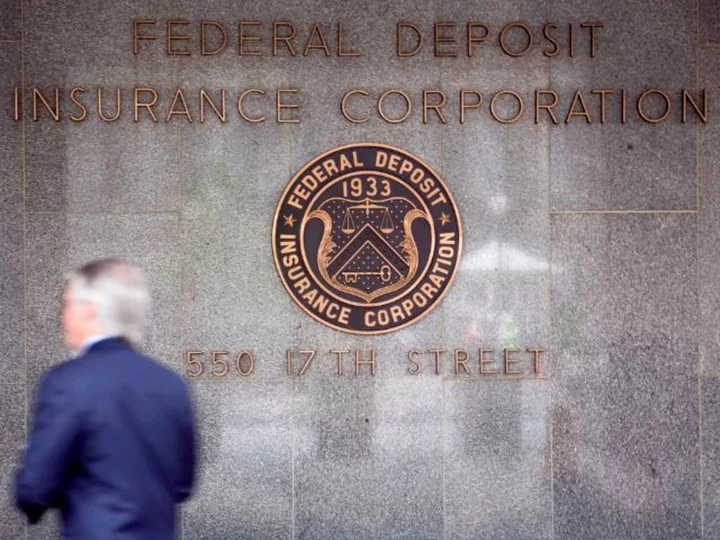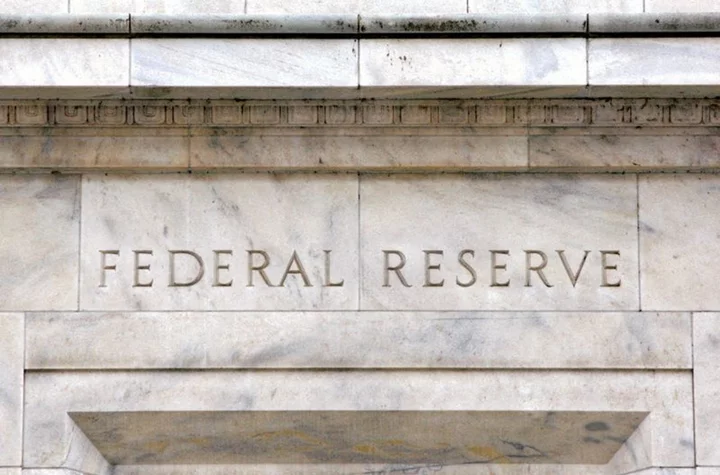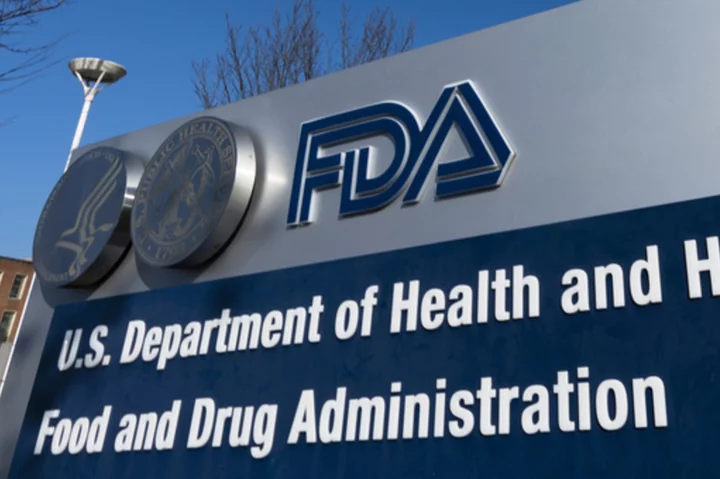US bank regulators advanced proposals on Thursday aimed at safeguarding the nation's largest banks in the wake of three regional bank failures earlier this year.
The new rules proposed by the Federal Reserve, Office of the Comptroller of the Currency and the Federal Deposit Insurance Corporation would increase the level of capital that banks with at least $100 billion in assets would be required to hold. The rules, collectively known as the Basel III endgame, wouldn't go into effect until 2028 if finalized after going through the standard notice-and-comment rulemaking process, which would end November 30.
US banks deemed systemically important globally — or, colloquially, "too big to fail" — would have to set aside an additional 19% of capital on average, according to the proposal. Banks with more than $250 billion in assets that aren't considered systemically important would see a 10% increase in the capital they're required to hold. Banks with asset levels between $100 billion and $250 billion, which included some mid-sized regional banks such as KeyCorp and Huntington Bank, would see a 5% increase.
Generally, this would mean banks would have to hold an additional two percentage points of capital, or an additional $2 of capital for every $100 of risk-weighted assets.
But smaller regional banks like PacWest, which is set to merge with Banc of California after reporting a $290 million decline in deposits last quarter, would be spared. In other words, these new rules would not have prevented the collapse of Silicon Valley Bank, Signature Bank or First Republic earlier this year, said Steven Kelly, senior research associate at Yale's program on financial stability.
Banks will no longer be able to act as their own risk managers
Under the new rules, banks with $100 billion or more in assets won't be able to use their own models to determine the risk they've undertaken on loans and other activities. Their risk-level assessments have been the basis for informing how much capital they need to hold on top of baseline requirements.
The new rules would force banks to use a standardized model that is more conservative than their own in terms of access risk.
Accounting for unrealized gains and losses
Banks would be required to factor in unrealized losses and gains on securities in their portfolios in the capital ratios.
Silicon Valley Bank accumulated a lot of paper losses, or unrealized losses, from holding bonds while the Fed hiked interest rates. (Generally, interest rates on bonds go up as the Fed hikes, which leads to lower bond prices.) Eventually, SVB had to sell the bonds, which meant it had to realize the loss. But it did not need to hold capital to protect depositors from those losses.
How will this affect the average consumer?
Some officials who voted against the new regulations within the FDIC and Fed cited concerns that it could significantly constrain banks' ability to lend to businesses and individuals. Some also expressed concerns that banks would pass on their higher capital costs to consumers in the form of higher fees to maintain their profit levels.
"The increased capital requirements could lead to an increase in interest rates for low- and moderate-income and other historically underserved borrowers who cannot always afford a 20% down payment, making it that much harder for these families to achieve homeownership," FDIC board member Jonathan McKernan said on Thursday at the agency's board meeting held to vote on the new plan.
"Those who rely on these products and services will bear the cost of capital increases," Fed Governor Michelle Bowman, who voted against the new rules, said on Thursday. "For example, when a local government issues municipal bonds to finance local infrastructure, they may find that financing is more expensive, or in some cases unavailable. Manufacturers may find it harder to get loans to invest in equipment or facilities," she added.
Kelly, who is ambivalent about the new regulations, said the average consumer will likely be "minimally" impacted.
Non-bank financial institutions like venture capital and private equity firms will likely fill the void for any lending that traditional banks will have to cut back on, he said.
"This is a marginal inconvenience at best," Kelly added. Some consumers might be forced to "shop around a little more" to get a better interest rate on a loan. On the flip side, the regulations could give smaller banks a chance to offer more competitive rates compared to mega banks like JPMorgan Chase.
Separately, on Thursday the Fed also released new capital requirements that go into effect on October 1 for large banks, based on their stress test results last month. The minimum capital requirements that banks are subject to did not change from last year.
Some of the nation's largest banks, including JPMorgan Chase, Bank of America and Morgan Stanley, won't have to hold as much capital based on their performances. However, UBS, Citizens Bank and Capital One will have to hold more capital.
Shares of JPMorgan Chase and Bank of America both ended the day down more than 1%. The KBW Nasdaq Bank Index, which tracks 24 banks, closed down 1.2% Thursday.









